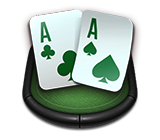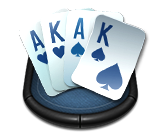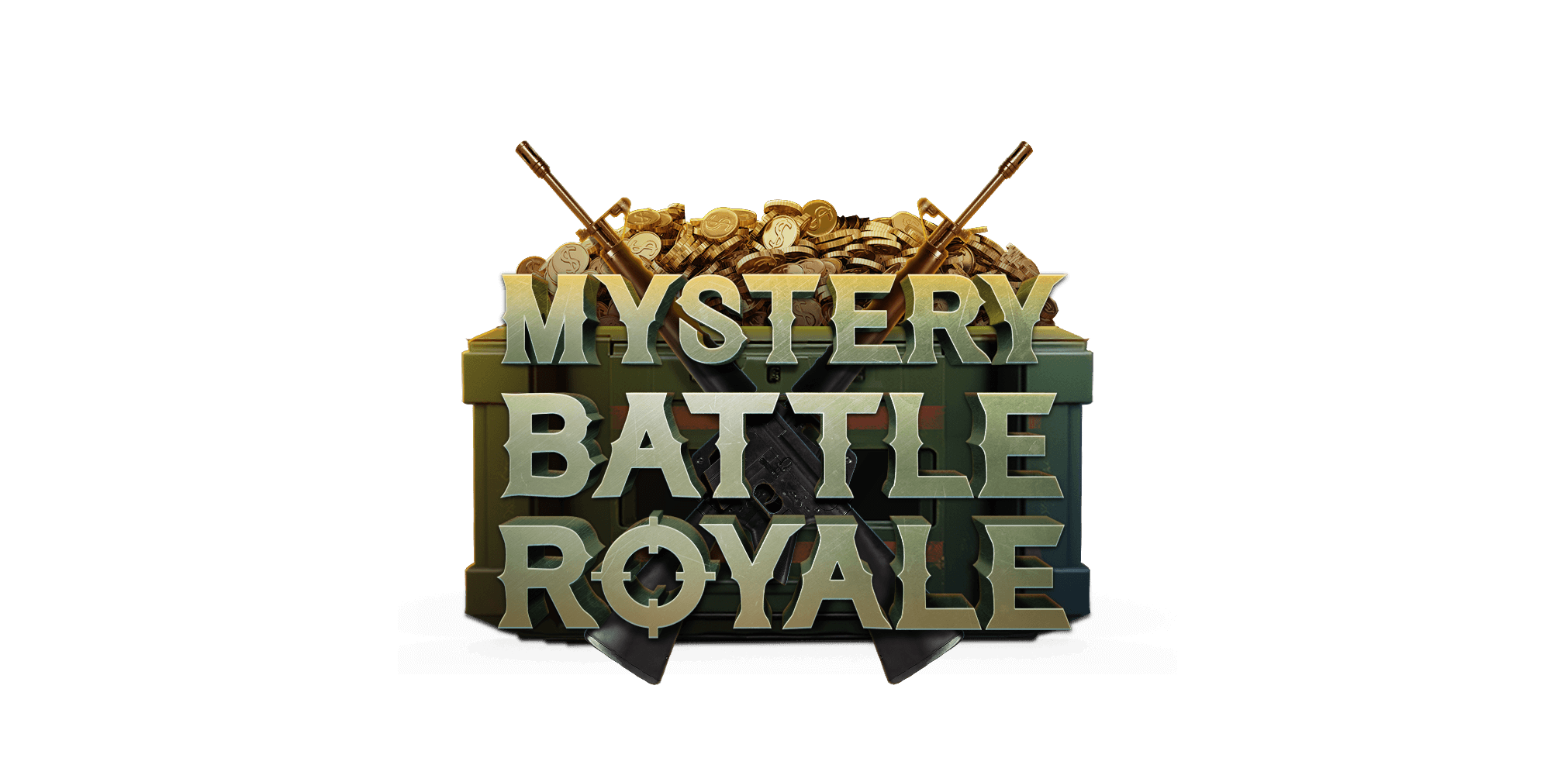
Poker might be an easy game to learn, but it’s a tough one to master. Some might say it’s a game of luck, but many will argue that it’s a game of skill. The ability to read players, to decide when to fold and when to bluff or call someone else’s bluff, is key to becoming a successful poker player. While there are many variations to the game of poker, and each has its own rules and strategies, the basics of the game are similar across all variations. Once you master the basics of how to play poker, you’ll be able to adapt to any type of poker.
Today, we’ll be focusing on the poker basics of the most popular game of poker, Texas Hold’em Poker. Before you start playing online poker or live poker, you’ll need to first be well acquainted with the basic rules of how to play Texas Hold’em Poker.
Texas Hold’em Rules for Beginners
Texas Hold'em is a popular variation of the standard game of poker. It originated in the early 1900s in Robstown, Texas, USA, where it was first played in a local card game called "Hold Me Darling." The game eventually migrated to the city of Dallas and became known as Texas Hold'em.
The basic rules of Texas Hold'em are straightforward. Each player is dealt two private cards, known as hole cards, which they must keep secret from the other players. Then, five community cards are dealt face up on the table, which all players can use to make their best possible hand. The object of the game is to make the best five-card hand possible using any combination of the two hole cards and the five community cards.
After the initial deal, there is a round of betting. Then, three community cards are dealt face-up on the table, followed by another round of betting. This process repeats with the fourth and fifth community cards, with a round of betting after each card is dealt. Players can choose to fold, call, or raise during each round of betting.
Why is it worth learning how to play this game?
Texas Hold'em has become one of the most popular poker games in the world, with millions of players and numerous tournaments held throughout the year. Some of the best Texas Hold'em players include Doyle Brunson, Phil Ivey, and Daniel Negreanu, among others.
One of the most prestigious Texas Hold'em tournaments is the World Series of Poker (WSOP), which has been held annually in Las Vegas since 1970. The WSOP Main Event is a $10,000 buy-in no-limit Texas Hold'em tournament, and the winner receives a multi-million dollar prize and the coveted WSOP Main Event bracelet. Other popular Texas Hold'em tournaments include the European Poker Tour (EPT), the World Poker Tour (WPT), and the Aussie Millions.
With this level of popularity among players around the world and various online poker sites, Texas Hold'em is one of the best poker games to learn when entering the poker scene.
Is Texas Hold'em Poker Hard to Learn?
Texas Hold'em is a relatively easy game to learn for beginners. The basic rules are straightforward, and once you understand the ranking of the different hands, the gameplay is simple to follow. However, becoming proficient in the game and mastering its strategy takes time, practice, and dedication.
One of the reasons why Texas Hold'em is popular among beginners is that it has a simple structure and rules. Compared to other poker variants, such as Stud or Omaha, Texas Hold'em is much easier to pick up. Moreover, there are many resources available, such as books, videos, and online tutorials, that can help beginners learn the game.
However, as players become more experienced, they will discover that Texas Hold'em is a complex and intricate game. To excel at Texas Hold'em, players need to develop a deep understanding of strategy, including position, hand selection, betting, and bluffing. They also need to be able to read their opponents and make accurate assessments of their cards and tendencies.
Overall, while Texas Hold'em is easy to learn for beginners, it is a challenging and nuanced game that takes time and effort to master.
The Basics Of How To Play Poker
Okay, so now that we have a better understanding of what Texas Hold'em is and why it might be worth it to learn this poker variant, let's get to the good part and learn about its rules, betting rounds, and other intricacies of the game.
The Dealer Button
In online poker, to make things fair for everyone, the players will take turns holding the “Dealer” button. It is usually indicated by a round disk with the word “Dealer” on it, and the player with the Dealer button will be the one holding the “Dealer position”. This player will also be the last person to receive the cards.
The Blinds
Before cards are dealt, players must post blinds. Poker Blinds are considered forced bets and are posted by the two players immediately to the left of the dealer button. Depending on the type and limit of the poker game, the blind structure will vary. However, the concept itself remains the same.
There are two types of blinds: The “Small Blind” and the “Big Blind”. Both blinds are posted before players receive their cards. The “Small Blind” is posted by the player directly to the left of the dealer button whereas the “Big Blind” is posted by the player to the left of the ‘Small Blind’.
The Straddle
While we are at it, here’s another thing that you should know - “Straddle”.
A straddle is essentially a blind raise; an optional and voluntary bet made by the player who would be the first to act after the small and big blinds but before the cards are dealt. The player to the left of the Big Blind can choose to straddle by doubling the Big Blind before the hole cards are dealt.
Note: Since this is a voluntary bet, it will not happen that often.
The Betting Rounds
In Texas Hold’em, there are four betting rounds: Pre-flop, Flop, Turn, and River.
Pre-Flop
Once the blinds are posted, every player will be dealt two cards face down. Small Blind is the first to receive, and the cards will then be distributed clockwise around the table, with the dealer being the last person to receive the cards.
These two cards are called “hole cards”. There will be one round of betting once all the cards are dealt. During this round, players can choose to “Check”, “Bet”, or “Fold”. At this point, decisions should be made based on your “hole cards”. Once the betting round is complete, the community cards will be dealt.
The Flop
 Once the pre-flop phase is complete, three shared cards will be dealt face-up in the middle of the table. This phase is called ‘The Flop.’
Once the pre-flop phase is complete, three shared cards will be dealt face-up in the middle of the table. This phase is called ‘The Flop.’
Every poker hand consists of five cards. During the flop phase, every player’s hand will consist of the two cards in hand as well as the three cards that were dealt face up. A second betting round will begin starting from the player to the left of the dealer button. Players can choose to ‘Bet,’ ‘Check,’ ‘Fold,’ or ‘Raise’ during this phase.
Bear in mind that your decision should be made based on the current hand you have, as well as the potential of your hand. This is because there are two more phases in which players can improve their hands.
The Turn
 Once the flop phase has concluded, the dealer deals another card face-up in the middle of the table, starting a third betting round. This phase is called ‘The Turn.’
Once the flop phase has concluded, the dealer deals another card face-up in the middle of the table, starting a third betting round. This phase is called ‘The Turn.’
Remember that every poker hand consists of five cards, and with the addition of the card at ‘The Turn,’ you now have six cards available. At this point, every player will now be able to use any combination of five cards from the table and their hand to make the best hand possible. For example, a player can use one card from their hand together with four cards from the table. Or two cards from their hand and three cards from the table.
Once again, another round of betting will follow after ‘The Turn’ is revealed. There will be one more phase after ‘The Turn,’ so there is still a potential to improve one’s hand.
The River
 Once the betting for ‘The Turn’ is complete, the final betting round will begin with a card being dealt face up in the middle of the table. This final phase is called ‘The River.’
Once the betting for ‘The Turn’ is complete, the final betting round will begin with a card being dealt face up in the middle of the table. This final phase is called ‘The River.’
There are currently seven cards that a player can work with now. Each player can now make a hand of five cards from any combination of cards in their hand or on the table. It is sometimes possible to make the best hand using the five shared cards on the table.
The final round of betting will follow after ‘The River’ is revealed.
Determining A Winner In A Poker Hand
There are two ways to end a hand in poker games.
1: Any time throughout the game, a player can make a bet which causes every other play to fold. If this happens, the last player standing will win the hand and ‘The Pot.’ In this case, the remaining player does not need to show their ‘hole cards.’
2: If two or more players make it through the betting round after ‘The River,’ players will then proceed to turn over their ‘hole cards,’ and the player with the best hand will win ‘The Pot.’
In some situations, the players may end up in a tie. When this happens, the pot will be split equally among the players. If there are any extra chips, these chips will go to the first players after the button in clockwise order.
Texas Hold'em Hands Ranking
The best possible hand in Texas Hold'em is a royal flush, which is a straight flush that runs from 10 to ace. Other strong hands include a straight flush, four-of-a-kind, a full house, a flush, and a straight.
A hand that contains two cards of the same rank is called a pair, and higher pairs are stronger than lower ones. For example, a pair of aces is stronger than a pair of kings.
A hand that contains three cards of the same rank is called three of a kind, and higher three-of-a-kind hands are stronger than lower ones. For example, three aces are stronger than three kings.
Five cards of the same suit are called a flush, and higher flushes are stronger than lower ones.
A hand that contains five cards in consecutive order is called a straight, whereas a full house is a combination of three of a kind and a pair. A full house with a higher three of a kind is stronger than one with a lower three of a kind.
In Texas Hold'em, good hands are those with high-ranking cards that have a better chance of beating other players' hands. However, the strength of a hand also depends on other factors, such as the position, the number of players, and the betting patterns of opponents.
 You can download and/or print out the chart above to look at whenever you forget about the rankings. We have also written a guide to poker hand rankings, which you can take a look at if you want to know more about the hands.
You can download and/or print out the chart above to look at whenever you forget about the rankings. We have also written a guide to poker hand rankings, which you can take a look at if you want to know more about the hands.
How To Play Poker: More Strategies
Texas Hold'em is a game of both skill and luck, and there are several strategies that players can use to improve their chances of winning. Here are some of the best Texas Hold'em poker strategies:
Position: One of the most important factors in Texas Hold'em is position. Players who act last have an advantage because they have more information about their opponents' actions. Therefore, playing fewer hands from the early position and more hands from the late position can be a winning strategy. The best position in the game is "on the button," while the least favourable would be the "Small Blind.'
Folding a hand after the flop: Another key strategy is correctly assessing the risks. Players with less experience have a hard time folding after the flop when they've already invested money. But when you have a decent hand, the flop may turn out to be deadly for you. You should always remember about the bigger picture and pay attention to the hands of your opponents, not just your own. This way, it'll make it easier to make tough calls, like folding after the flop, easier.
Bet sizing: Bet sizing is an important strategy because it can help a player gain information about their opponents' hands. A well-timed bet can also force weaker hands to fold and win pots without having to show cards.
Bluffing: Bluffing can be a powerful tool in Texas Hold'em, but when you're new to the game, it should be used sparingly and with careful consideration. A good poker bluff requires a player to read their opponents and understand the board texture.
Bankroll management: A final strategy is to manage your bankroll effectively. This means playing at stakes that are appropriate for your skill level and bankroll size.
For beginners, the most important factor to pay attention to is position. By understanding the value of the position and playing accordingly, beginners can avoid costly mistakes and make more profitable decisions.
Ultimately, what determines whether someone is good at Texas Hold'em or not is their ability to make better decisions than their opponents over the long run. This requires a combination of skill, strategy, and discipline, as well as a willingness to continually learn and improve. Good players are able to read their opponents, analyse the board texture, and make well-informed decisions based on the information available to them.
The beauty of the game of poker is in its possibilities. Once you’ve got a handle on the basics of the game, it’s time to learn about reading players, bluffing, different betting strategies, and more. Check out our related articles for more poker tips and guides to improve your game.
Texas Hold'em Poker Rules - FAQs
Q: What is the 7-2 rule in poker?
The "7-2 rule" in poker refers to a general strategy guideline that suggests players should fold their hand if they are dealt a 7 and a 2 as their hole cards. This is because these two cards are considered to be among the weakest starting hands in Texas Hold'em poker, and it is unlikely that they will improve significantly after the flop.
The rule is not a hard-and-fast rule that applies in every situation, as there are some exceptions depending on the game format, table position, and the actions of the other players at the table. However, the 7-2 rule can be a useful guideline for beginner players to avoid getting into difficult situations with weak hands.
Q: How to play Texas Hold'em games online?
Playing Texas Hold'em games online is similar to playing them in person, but there are some key differences in the process. Here are the basic steps for playing Texas Hold'em games online:
Choose a reputable online poker site: There are many online poker sites available, so choose one that is reputable and has a good reputation for fair play, security, and customer support. Natural8 offers all of that and more.
Create an account: To play online, you'll need to create an account with the site of your choice. This usually involves providing your personal information and creating a username and password.
Make a deposit: Once your account is set up, you'll need to make a deposit to fund your account. This can be done using a variety of payment methods, such as credit cards, e-wallets, or bank transfers.
Choose a game: Once your account is funded, you can choose from a variety of Texas Hold'em games and tournaments, including cash games, Sit & Go's, and multi-table tournaments.
Join a table: Once you've chosen your game, you can join a table and take your seat. Most online poker sites allow you to choose your seat position, so you can take advantage of your preferred position.
Play the game: The game will proceed just like it would in a live game. You'll be dealt your hole cards, and then the betting rounds will begin. You can use the site's interface to place your bets, raise, or fold, just like you would in a live game.
Withdraw your winnings: If you win, you can withdraw your winnings using the same payment method you used to make your deposit.
It's important to remember that online poker games can be faster-paced than live games, so it's crucial to pay attention to the action and not get too caught up in the speed of the game. Additionally, make sure to choose a reputable site, manage your bankroll carefully, and play within your limits.
More About How To Play Texas Hold'em
The beauty of the game of poker is in its possibilities. Once you’ve got a handle on the basics of the game, it’s time to learn about reading players, bluffing, different betting strategies, and more. Check out our related articles for more poker tips and guides to improve your game.

.webp)


























